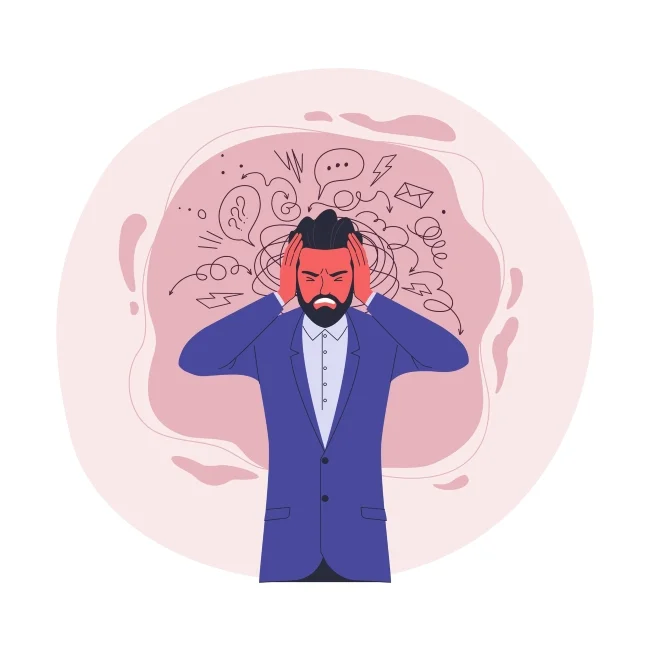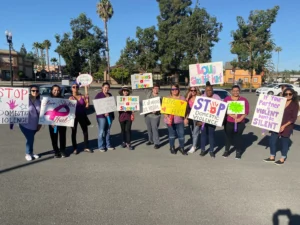“To achieve great things,” said Leonard Bernstein, “two things are needed: a plan and not quite enough time.” A looming deadline, and the mix of stress and determination that encourages us to meet it, can be a good thing. But when stress stops becoming motivating and starts to be a hindrance, it’s important to know how to beat it. Otherwise, it can wear down our health, our relationships, and our community.
Here’s a look at the impacts of stress on our bodies and minds, its ties to domestic violence, and the ways we can de-stress.
Effects of Stress
If you’ve ever nursed a headache or an upset stomach after a stressful day, you’re no stranger to the effects of stress on the body. Although stress can be helpful in certain situations by helping us with awareness, strength, or stamina, it can also be incredibly detrimental to our health. Stress affects the way we function on so many levels, from taut muscles to blood pressure to respiration. Chronic stress can worsen these effects and contribute to serious health problems.
Cleveland Clinic highlights these physical effects of stress:
-
Aches and pains.
-
Chest pain or a feeling like your heart is racing.
-
Exhaustion or trouble sleeping.
-
Headaches, dizziness or shaking.
-
High blood pressure.
-
Muscle tension or jaw clenching.
-
Stomach or digestive problems.
-
Trouble having sex.
-
Weak immune system.
These negative effects of stress can clearly wreak a lot of havoc on our bodies, but unfortunately, they can also have worrying effects on our minds, too. The psychological effects of stress include anxiety, sadness, depression, panic attacks, and irritability. These feelings can affect our behavior in turn, causing changes such as overeating or undereating, social withdrawal, and angry outbursts.
Does Increased Stress Increase Violence?
The psychological impacts of stress can lead to angry outbursts, and have been shown to increase the risk of violent behavior. The link between stress and violence is evident everywhere from the workplace to the home environment. Economic stress, for example, is tied to increased family stress y domestic violence.
Heightened stress levels make things particularly difficult in cases of domestic violence. Concern has arisen around the effects of COVID-19 pandemic-related stress y domestic violence and child abuse. These worries spring from findings that “increased stress levels among parents is often a major predictor of physical abuse and neglect of children.” On top of that, when children experience stress, their resulting anxious behavior may increase the likelihood of parents responding in abusive ways.
The higher risk of domestic violence in stressful times means that stress relief is even more important today. Dr. Amy Damashek, an associate professor of psychology at Western Michigan University, tells the APA, “Anything that reduces stress can reduce the risk for abuse and neglect.”
Stress Relief
Help combat abuse, neglect, and violence by learning about stress relief! You can apply these concepts to your own life to ease the effects of stress, and you can pass the information along to people you know who might be struggling.
MayoClinic provides a simple mnemonic to help you remember stress relief tactics—the 4 A’s:
-
Avoid: Believe it or not, it is possible to escape some of the minor stressors that tend to trouble people. Take control of the stress that fills your day by finding ways to make the situation better.
-
Alter: Communicate clearly and let people know your expectations. It can make a world of difference.
-
Accept: Accepting the situation can ease much of the stress when avoiding and altering doesn’t work.
-
Adapt: Changing your standards and expectations of stressful situations can help you cope with stress.
When you’re looking to adapt and cope with stress, it’s essential to start from a place of exploration. Get to know yourself. How do you respond to stress? Which activities calm you down most effectively?
HelpGuide highlights the distinction between overexcited and underexcited responses to stress. If you’re overexcited and tend to become “keyed up,” it’s best to seek out stress relief activities that promote calm and quiet. On the other hand, if stress tends to make you depressed or withdrawn, you should try stress relief activities that provide gentle stimulation and energy.
Once you know whether to seek calmer or more energizing tactics, start experimenting with the senses (sight, sound, taste, touch, smell) for fast stress relief. Try watching a nature scene, listening to your favorite song, or lighting a candle. What do you respond to the most?
Weaving these activities in throughout the day will help you maintain low stress levels and better health! Physical exercise, adequate sleep, and supportive social networks are all crucial aspects of stress management as well. And if you feel stress start to overwhelm you, don’t worry; there are an abundance of organizations and programs ready to help you!
At Crisis House, we are here during these stressful times to support families with our services and resources. We provide crisis intervention; emergency, transitional, y permanent housing; y servicios para familias y niños que huyen de la violencia doméstica. Somos líderes en servicios críticos en East County, San Diego, administrando programas para individuos y familias que experimentan violencia doméstica y personas sin hogar.
Véase nuestro impacto y Ayúdanos llegar a los necesitados donando o voluntariado ¡hoy! También puede suscríbase a nuestro boletín to stay in the loop as we work to connect families, children, and individuals to crucial resources. Together, we can stop the cycle of domestic violence, child abuse, and homelessness, and empower people to renew their lives!







